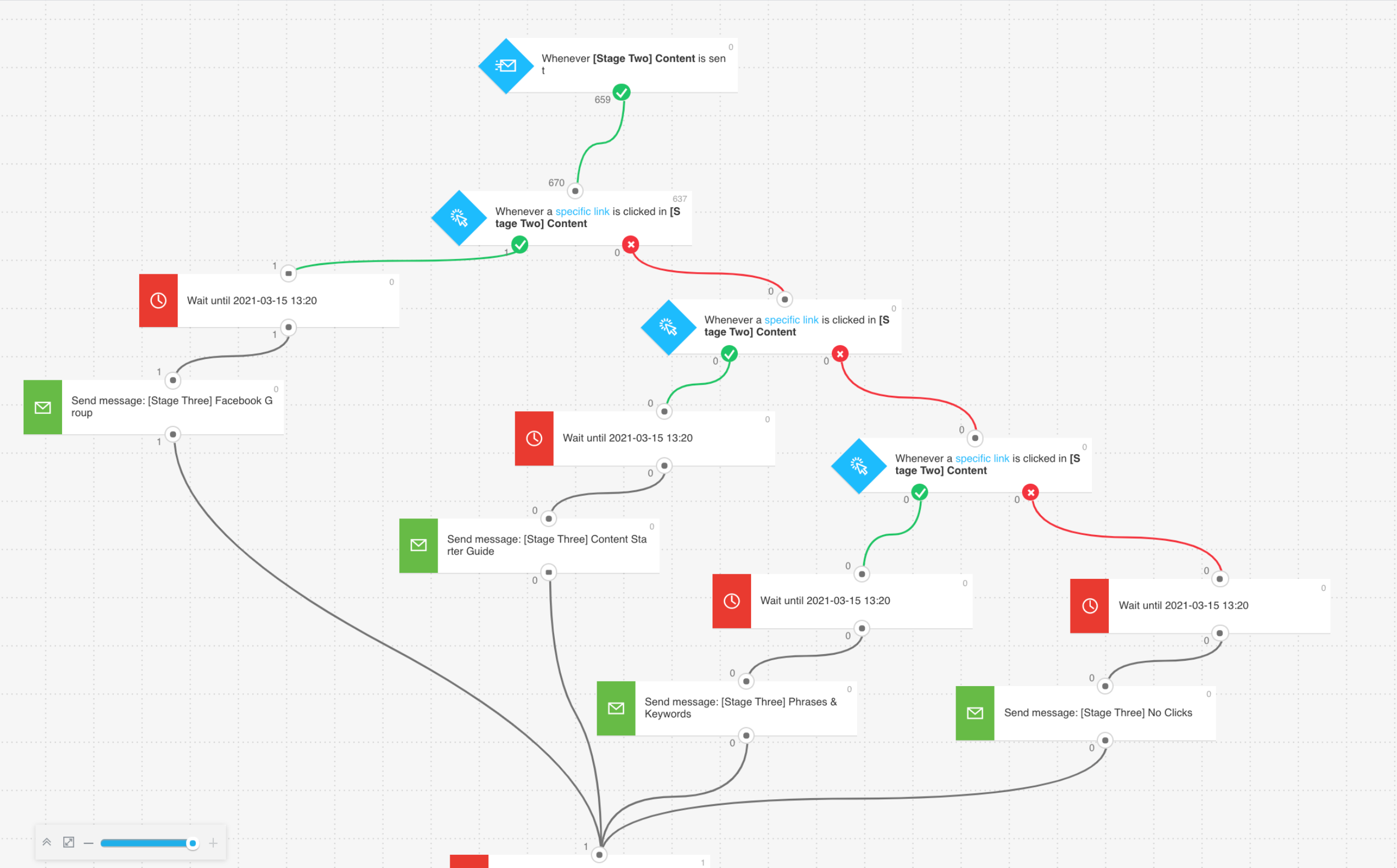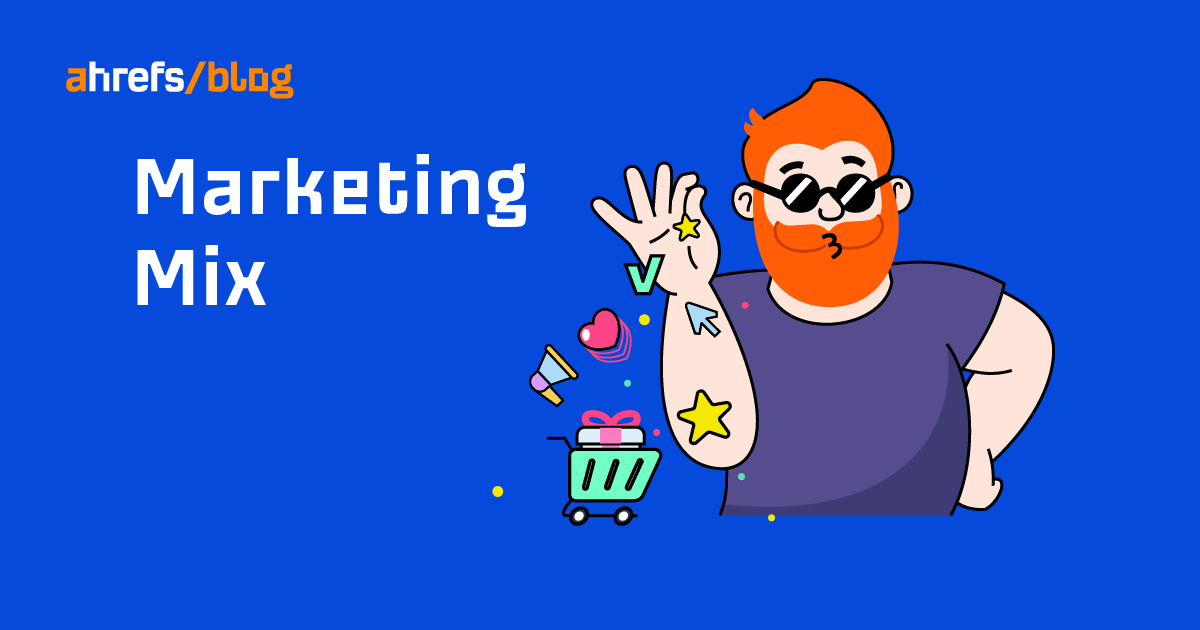6 Email Marketing Tips for Winning Travel Industry Campaigns via @seo_travel
The travel industry is fiercely competitive. Learn how to craft email marketing campaigns that get noticed and win conversions for your travel business. The post 6 Email Marketing Tips for Winning Travel Industry Campaigns via @seo_travel appeared first on...

The travel industry is a fiercely competitive place and inboxes are jam-packed these days. When it comes to email marketing, you really need to stand out.
All of the best travel companies in the business are using email marketing to keep in touch with existing customers, interact with high-quality leads and build a stronger and more meaningful relationship with their audience.
It’s fast, cost-effective, and has one of the best return-on-investment (ROI) rates of any marketing channel — $38 in ROI for every $1 spent, according to CampaignMonitor.
But with so much email content already on the market for travelers, how do you ensure that yours isn’t sent to Trash unread?
Understanding the best ways to engage and inspire your target audience with email content is a simple process — that is, once you’ve got your head around how to segment your mailing lists and craft engaging emails.
In this column, you’ll find tips and advice for travel businesses who want to take their email marketing to the next level.
Advertisement
Continue Reading Below
Let’s get started.

Some email marketing experts will tell you to collect as many contact details as possible on your site to ensure that your mailing list is wide-reaching.
The problem with this approach is that the majority of readers just aren’t going to be interested in what you have to say.
You’ll be much more successful if you use carefully crafted lead magnets to capitalize on people who are already interested in what you have to offer, rather than using a basic “opt-in” box.
Advertisement
Continue Reading Below
Say you have an article on your website’s blog that features unique advice for travelers planning on visiting Italy with children, for example.
You’ve studied your site analytics and know that this post gets a high volume of visitors every month.
You also know that a significant proportion of your customer base is parents who travel with their children.
It’s the perfect opportunity to use a lead magnet.
At the bottom of this post, you could include a call to action that tells the reader that they can receive more specialist travel advice from your email newsletter if they enter their email address.
Even better, have an eye-pleasing pop-up that tempts users with a valuable free download of a child-friendly travel guide to Italy or access to a list of the best family restaurants in Rome.
This will entice users to opt-in to your list and give them value.
They sign up, and you gain a potential customer who is already engaging with the content you produce and therefore is already more likely to respond well to other marketing material.
Boom! A warm lead straight into your customer database or email marketing platform.
You can use this process to create lead magnets across your site that target different members of your audience with different intents and interests.
A good starting point is to analyze which pages are receiving the most amount of traffic, identify who is visiting and engaging with the content on there, and create a lead magnet that adds value to them.

The simplest way to operate your email marketing strategy is by using software that automates the process.
Advertisement
Continue Reading Below
We favor GetResponse, but there are plenty of different providers out there.
Automation software allows you to create specialized email pathways for customers who opt-in, tailoring the content they receive based on what brought them to your site in the first place and what they interact with after that.
This not only makes your job a lot easier but allows you to accurately monitor the success of each email pathway and identify where your readers are engaging and where they might be dropping out.

A standard example of an automated email pathway begins with a potential customer entering their email somewhere on your site, prompted by a lead magnet.
Advertisement
Continue Reading Below
They will then receive a welcome email from your travel company, explaining a little bit about who you are and what you do.
This welcome email will also feature several links to other relevant pieces of content or pages on your website, which the reader might then click on.
The content that is featured in this welcome email can be tailored depending on what encouraged the reader to first give you their email address.
So, if they came to your mailing list through an article about visiting Italy with children, you’ll want to link them to more articles about family holidays, visiting Italy, or family-friendly activities in Italy.
A series of specific branch emails will set up within your software will send regularly based on data such as whether the reader clicks on a specific link within the email or visits your site and starts browsing.
You get a clear idea of what your customer base is looking at and engaging with, and the automation does the hard work.
Advertisement
Continue Reading Below
The delivery of these automated emails can also be tailored to the location and time zone of their recipients, to increase the likelihood of them being read.
Many pieces of email marketing software also let you take this one step further and gather data on what time of day your recipients usually open your emails.
You can then choose to send further emails at this time, which again will increase the number of people who open and engage with the content you have shared.
Not bad for a simple bit of automation, right?
When it comes to adding value through your email marketing, segmentation is key.
Advertisement
Continue Reading Below
While some huge travel businesses can get away with sending generic emails to their entire customer base, this simply won’t reap the same results for the vast majority.
Splitting your recipients into different groups based on their interests and what content they engage with the most is the best way to ensure you are only delivering valuable content to your audience.
As you gather more data on which emails and content are the most successful with each group, you can further personalize the content you send out. This can increase engagement and improve conversion rates.
Including links to other pages, posts and pieces of content on your company’s website allows you to collect data on what each recipient clicks on.
The next emails that the users receive will be based on what kind of content they engaged with and enjoyed most.
Using the automation process outlined above, you can personalize the email pathways for each of these groups, building out the options as you go, based on how the user interacts with your communications.
Advertisement
Continue Reading Below
Including follow-up emails in your automated process that ask whether your reader enjoyed the recommended content is a great way to engage your audience and gain valuable feedback.
Create a simple link click-based voting system that will allow you to gather further valuable insight. The data you gather from this allows you to intelligently usher your customer down your marketing/sales funnel and drive more conversions.
By continuing this process, you gain a detailed understanding of what your mailing list is looking for and can continue to personalize their emails to keep delivering valuable and engaging information.
You also become a trusted source of information and a thought leader in your space.
But don’t just take my word for it.
A recent study done by Google and Phocuswright revealed that 36% of travelers are more likely to pay more for the services of a travel business if the information and trip ideas they were given were personalized based on their past behavior and preferences.
Advertisement
Continue Reading Below
You can’t argue with that!
If “sell, sell, sell” is at the forefront of every piece of email marketing you send out, your audience is quickly going to lose interest.
Instead, a key way to set yourself apart from the competition is to tell stories with your emails, integrating your products or services within these when they are relevant to the insight you are giving.
Advertisement
Continue Reading Below
The best way to get through to people is to paint a picture they can’t help but imagine themselves in. Use sensory description and personal stories to immediately get them hooked.
Storytelling with your emails not only makes them more memorable but also establishes your business as a more credible source of travel advice.
Writing content that is personal, descriptive, genuinely interesting, and engaging means your readers are far more likely to hang around, trust the information you give them, and think of you when they start planning a holiday.
Many of us daydream about travel, and your emails should make the most of this.
Imagine you’ve got two different emails in your inbox. Both are from travel businesses that focus on holidays in Italy, and both contain content designed to inspire you to book your next trip with them.
The first email opens with a banner outlining the company’s current deals on visiting Italy’s major cities. There’s a greeting, some appealing photos of places like the Colosseum and Rialto Bridge, and a well-written (if a little bland) short article offering five tips for getting the most out of visiting Rome, Venice, and Florence. The email closes with a message informing you that the exclusive deals won’t last long and that you should book your next trip today.
Advertisement
Continue Reading Below
The second email opens with a greeting from Francesca, an Italian travel expert who is currently living in Tuscany. She describes what it is that made her fall in love with Italy in the first place, the different towns and cities that she has stayed in, and even the view of the Tuscan hills surrounding her as she writes.
Francesca goes on to give unique, thoughtful recommendations on some of the best places to visit in Italy in the coming months, drawing on her own experiences. A couple of links to the holiday packages her company offers are integrated into the text, but nothing too ‘in-your-face’.
At the end of the email, there are a few more links to other pieces of content Francesca has written. Because you have previously engaged with content that focuses on family travel and locations suitable for young children, the recommendations are personalized to suit these interests.
Which one of these emails would you most likely read, enjoy and engage with?
Advertisement
Continue Reading Below
You don’t have to be the next great novelist to write compelling emails that tell a story. In fact, one of the easiest ways to produce email content like the piece described above is to use your staff or partners as the narrators in your email, describing their experiences and putting faces to the name of your company.
An easy formula to follow is this. Set the scene, show credibility, offer advice, and then slide in a very subtle sell if it feels relevant.
Focus on adding value to the reader’s inbox and gaining their attention and trust, instead of trying to sell your product or service every time.
The more emails you write and the more customer data you gather, the better idea you’ll get of what kind of storytelling is the most effective. As time goes on, you can hone your approach and produce outstanding content every single time.
It’s as simple as that.
Data for a study by Econsultancy suggests that 66% of travelers watch videos of a destination while researching where to travel.
Advertisement
Continue Reading Below
Research on the effect of video marketing also suggests that businesses who use video marketing get up to 66% more leads than their competitors who go without.
With this in mind, including videos within your email marketing is a fantastic way to improve reader engagement and ignite a sense of wanderlust in your audience.
Whilst well-crafted text that tells a story is essential in successful emails, video is the ultimate way to paint a picture for your reader and capture their attention and imagination in a new way. It’s an easy method of splitting up chunks of text, is more effective than just using photographs, and can help to explain detailed topics in a fast and simple format.
Video is one of the most versatile forms of content out there and is a fantastic way to maximize what you get out of the content you create. A single, 2-3 minute video can be split up into multiple different sections to use in a variety of different emails, as well as acting as a trailer for a long video available somewhere on your website.
Advertisement
Continue Reading Below
Not only that, but it’s a great way to “humanize” your content.
I talked above about storytelling by using real people to narrate your emails, and adding videos only furthers the effect of this. Your audience is much more likely to trust you if they’ve seen clips of people in your business describing experiences, giving advice, and offering valuable insights.
Video content is a huge part of effective marketing. Implement it in your email strategy and the results will speak for themselves.
The final piece of advice for effective email marketing is to nurture your audience. Above everything else, what is going to increase customer satisfaction, drive repeat business and establish a positive brand image is through producing content that is relevant, valuable, and unique.
Advertisement
Continue Reading Below
Segmentation has been mentioned a lot in this article, but it’s the key to delivering email content that leads to success.
If you’re not giving your readers exactly what they want, they’re going to unsubscribe to your mailing list. The best way to establish what they want is by creating groups with different interests and goals, targeting each of these with personalized content.
Each of your customer groups can be individually nurtured through your email content, building their trust and establishing yourself as someone whose content they really want to read. This relationship requires time and investment, but when your audience decides to book a holiday, you’ll be the company they think of first.
At the end of the day, your emails are only as good as the data you collect around them. It doesn’t matter how incredible your writing is or how valuable your videos are if you’re not analyzing their success and targeting the areas where your customers are engaging.
Advertisement
Continue Reading Below
However, once you’ve established this process, you’ll find that email marketing is one of the most rewarding and effective methods of marketing. It’s cost-effective, yields immediate effects, and has a huge reach that can really help to grow your customer base.
It’s also somewhere that you are in control and not reliant on third-party platforms. Algorithm changes in Google or updates to Facebook’s newsfeed can change your visibility overnight, but harnessing those channels into an email list gives you a resource that you’re in charge of and which can’t disappear overnight.
As a travel company, your job is transporting your readers to new places, both with your trips and with your content. Email marketing offers the perfect format for inspiration, advice, and building brand affinity, and the best news is, anyone can do it.
More Email Marketing Resources:
4 Ideas to Combine Email Marketing & SEO for Stellar Results5 Ways Email Marketing Can Help Your SEO EffortsNew Report Reveals the 3 Trends Shaping Email Marketing in 2020Advertisement
Continue Reading Below
Image Credits
Screenshots and Featured Image: Created and taken by author, March 2021

 JimMin
JimMin 





































